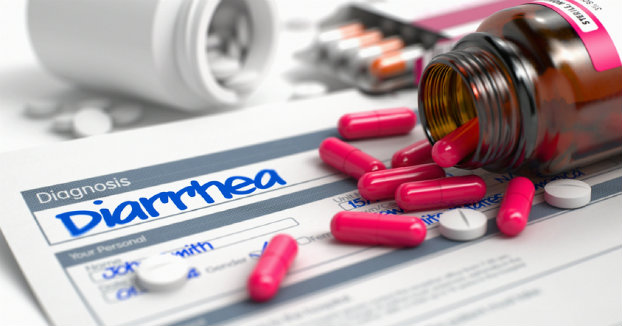We’ve all been there and it was not nice. Watery and loose stool that causes cramps and gas, and makes you feel dehydrated. Diarrhea is surely an unpleasant thing, but it’s common and can be easily treated with over-the-counter medicine. Sometimes it can be something you ate, harsh medicine such as antibiotics that imbalanced your gut flora, but it can also be a bacteria or parasites you took through water or food.

No matter the reason, diarrhea usually doesn’t last for too long (unless is a severe and serious case caused by parasites or bacteria) and can be easily regulated with a simple change in your diet and taking diarrhea medicine. Your chemist will offer you capsules, ready-to-drink formula (usually with a pleasant taste of orange or lemon), or electrolytes. Before you take any, be sure to know your symptoms. Mild symptoms that can be treated with a suitable diet and OTC medicine usually stabilize in a day or two. If things are more serious, you should contact your doctor.
Diarrhea Symptoms & Causes
Diarrhea is a passage of watery, loose and soft stool. Sometimes it can be followed by bloating, pressure and cramps that are commonly referred to as flatulence or gas. In case of severe diarrhea, you may feel fever, dehydration, abdominal pain and rectal bleeding, vomiting and sleepiness. These symptoms are severe and you should seek medical help. If you’re pregnant or have an underlying medical condition, you should also see your doctor.

The diagnosis doesn’t require any tests (the watery stool is the main indicator), however, in some cases, the doctor may order a stool culture, colonoscopy, blood test or imaging tests like X-rays or CT scans. When you have diarrhea, things aren’t pleasant for sure, but it’s not something that can’t be treated. First of all, you should change your diet and drink plenty of water. Eat bananas, rice, and toast to ease your symptoms. You can also take electrolyte solutions and other OTC medicine.
How Do OTC Diarrhea Medicines Work?

Over-the-counter diarrhea medicine may relieve your symptoms. Although you can take these medications from your local chemist, you can consult with your doctor first, if you want to be completely sure. What’s important is that you don’t give OTC medicine for diarrhea to children younger than 5 years of age. This antidiarrheal medicine includes bismuth subsalicylate and loperamide.
How to Take Diarrhea Medicine?
Before you take your antidiarrheal medicine be sure to read the directions included in the box. The instructions will indicate how often and how much of the medicine you need to take (and for how long). If things aren’t enough clear or you have further questions, you can always call your doctor.
In case you took the medicine and things didn’t work well, take it and show it to your doctor so they can know what’s going on.

Here are a few tips you can follow to make sure you take the right amount of medicine:
Take only the recommended dose; don’t assume that if you take more of the medicine it will work better or quicker. Taking a bigger dose can be dangerous and you can end up dealing with even more severe issues.
Don’t take more than one OTC diarrhea medication at once (unless your doctor says it’s all right). Taking more than one medicine can be too much for you (since both medications may have the same ingredients).
Who Shouldn’t Take This Medicine

Avoid diarrhea medications if bacteria or parasites are causing your loose stool. If you have a virus or bacteria, your body has to get rid of it. The OTC medicine may stop diarrhea which may be a risky thing; the diarrhea is your body’s way to get rid of the dangerous parasites.
Ask your doctor if you think you have a parasitic or bacterial infection. Avoid giving this kind of medicine to children younger than 5. Ask your doctor if a young child can use loperamide.
If you have a fever, avoid taking loperamide as well. If you have bloody or black stools (which can be a sign of a serious problem such as bacterial infection) avoid taking loperamide.
If you are allergic to aspirin or salicylate medicine, you should also avoid taking bismuth sabusalicylate. Children under the age of 12 should not take bismuth subsalicylate. Children and teenagers who have the flu or chickenpox should also avoid taking these types of medicine.
When To Call Your Doctor

In case your diarrhea lasts for more than two days, you should call your doctor. If the diarrhea is followed by fever, mucus or blood in your stool, you should also see your doctor. If you have a history of liver disease and are taking prescription medicine, talk to your doctor before taking any OTC diarrhea medications.
























